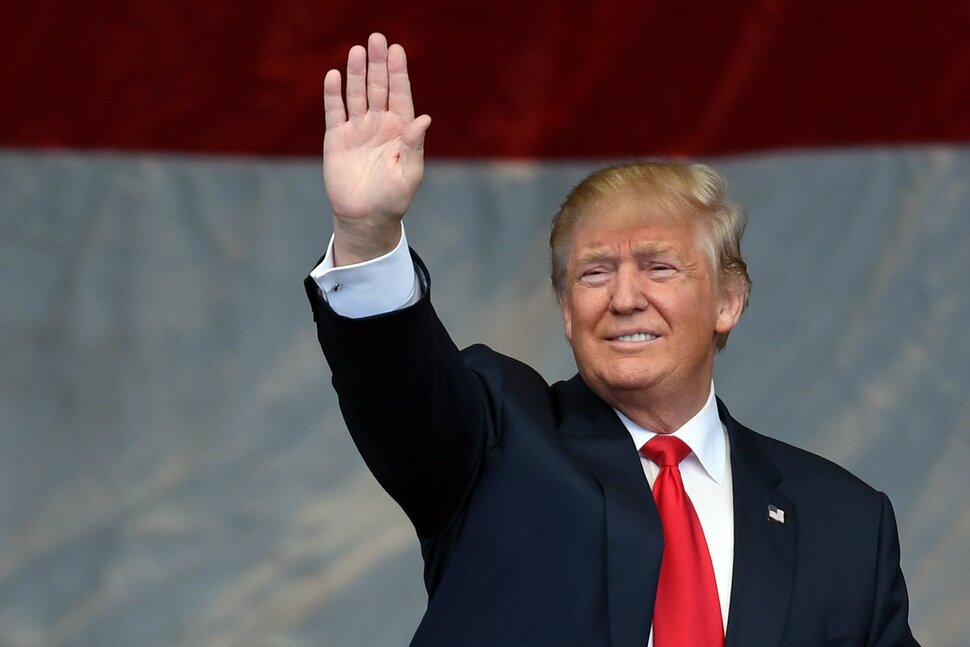Feel those? Those are the reverberations from the 2016 election. And those? Those are from the Trump presidency. But with President Trump gunning for another shot at the oval office, more political earthquakes are inevitable between now and 2024.
What shouldn’t have been so earth-shaking to the GOP and liberal establishment, though, is the fact that Trump’s political thought didn’t come out of nowhere. What the former president did was magnify the cleavages existing in the Republican party on key issues such as trade, economics, and especially immigration.
Trump himself may have been a new phenomenon, but that brand of conservatism has always lurked beneath the surface of both the conservative and American mind. The only difference is now it’s steaming across the surface like a powerboat off coast of Palm Beach, though in its full cultural expression it runs aground on the Mexican American experience.
Conservatives for Limited Immigration

Benjamin Franklin really disliked the Germans flowing into his beloved colonial Pennsylvania. He complained that they would “Germanize” the colonists and would fail to assimilate to the English-American colonists.
Franklin conceived of his land as belonging to a specific set of people with a particular ethnic identity and cultural practices based on English customs. In his bifocal-covered eyes, the Germans were interlopers who, left unchecked, would inevitably ruin his state.
He didn’t want to make America great again so much as make it much less German.
Conservative scholars like Charles Murray have posited an ethnic-cultural vision of the U.S. as a largely European nation based on English cultural heritage. While critics have labelled such views as racist and accuse people like Murray of being white nationalists, they counter that their views are based on culture, not race.
A necessary consequence is that these conservatives want an assimilation program imposed, preferably by public schools, though it’s not clear to what Anglo-American values people would assimilate exactly. Not to mention assimilation to the American of life is complicated given that assimilation and America itself are contested concepts.
Much like punk rock of the 1980s, we’re still trying to figure out what America is.
It’s been said that people don’t fear change so much as they fear loss. Given the profile of voters who turned the Rust Belt in Trump’s favor in 2016, it’s likely that they see immigrants not only as an economic threat but as a cultural threat– that people moving in are not only going to take their jobs, but cause them to lose their way of life.
Overall, this alternative conservative vision represents a departure from the conventional Reaganite conservatism that called for low corporate taxes, limited regulation, interventionist foreign policy, and more robust immigration. If the recent debacle over the House speakership is any indication, the tensions within the more corporate conservative and the immigrant-averse MAGA brand are going to keep boiling.
What Does This Mean for Latinos?

There are historical challenges to this specific cultural vision of America, most acutely in the U.S. borderlands. Scholars and academics have written about this unique landscape, in which Spanish colonists and indigenous societies often worked together to create a unique mestizo identity. People have also noted that the U.S.-Mexico border has always been porous due to proximity and intertwined economic interests.
The language, the cultural practices, the irrigation technology of the southwest were all the result of thousands of years of cultural innovation and exchange (some dating to the Spanish Moors) that would help make possible even the Anglo-American gold rush. The flow of people was always a reality, while borders were mostly a fiction.
It’s unclear, then, how the immigrant-averse wing of conservatives can complain that a country’s losing its cultural homogeneity if the history of that nation involved the conquest and usurpation of Africans, Native Americans, and Mexicans. They would have to assimilate these realities into their ideology without implying that Anglo Americans are racially and culturally superior.
This flavor of conservative doesn’t have to fear that their position on immigration will hurt them come the 2024 election, though. Latinos aren’t a monolith, as evidenced by their differing views on immigration by citizenship status. A Pew poll in late 2021 found that natural-born Latinos and even naturalized citizen Latinos are more likely to support stricter immigration policies than their non-naturalized counterparts.
Given how Latinos in Florida turned out for the GOP these past midterms, this shouldn’t be surprising. There’s also the fact that beliefs around immigration intersect with economic concerns and feelings of displacement, so material concerns often supersede cultural concerns. The anti-immigrant rhetoric of this populist wing of the GOP won’t hurt their chances at the polls, even if its intellectual foundation doesn’t line up with the Mexican American experience.












